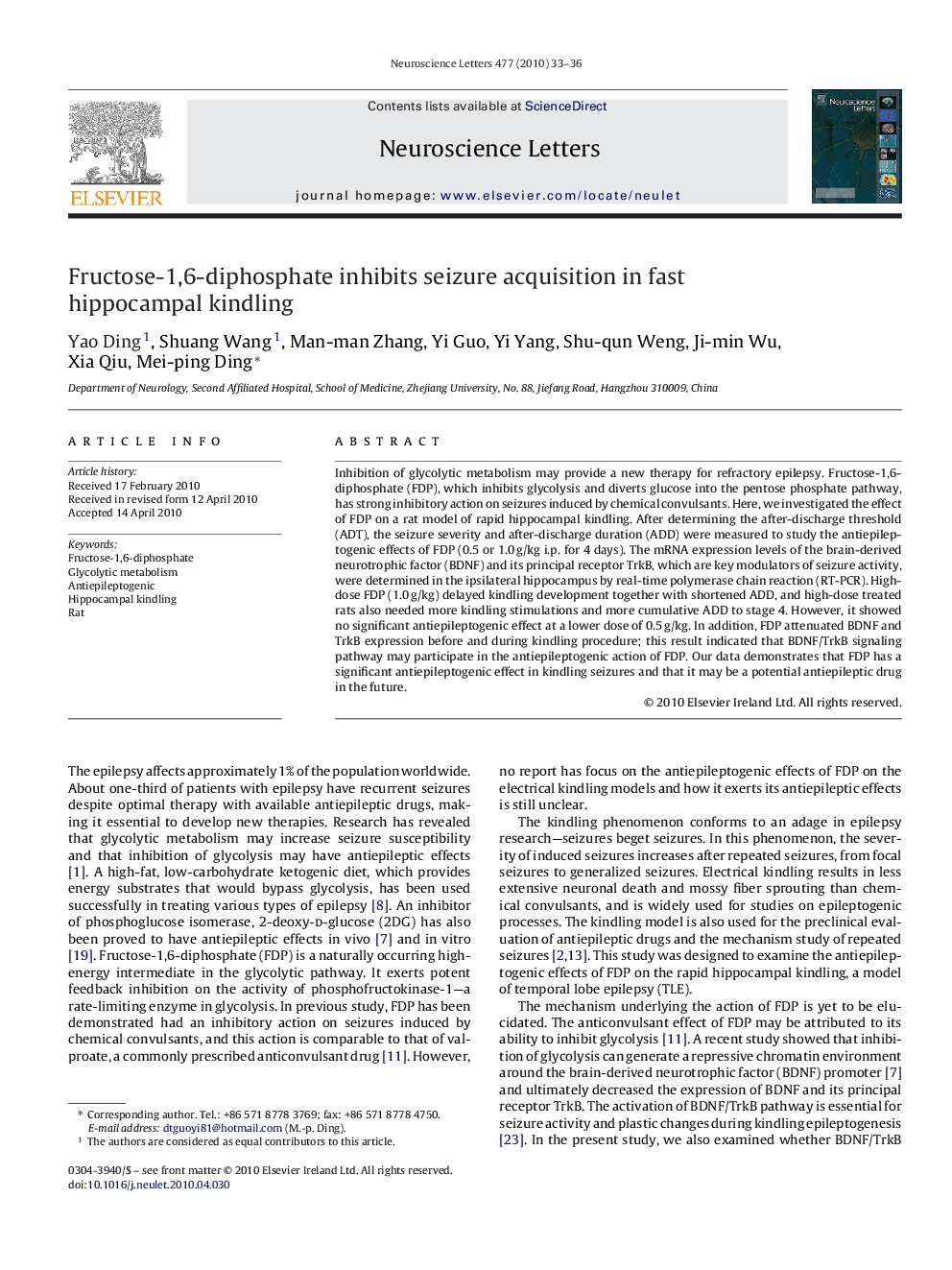| Article ID | Journal | Published Year | Pages | File Type |
|---|---|---|---|---|
| 4345979 | Neuroscience Letters | 2010 | 4 Pages |
Inhibition of glycolytic metabolism may provide a new therapy for refractory epilepsy. Fructose-1,6-diphosphate (FDP), which inhibits glycolysis and diverts glucose into the pentose phosphate pathway, has strong inhibitory action on seizures induced by chemical convulsants. Here, we investigated the effect of FDP on a rat model of rapid hippocampal kindling. After determining the after-discharge threshold (ADT), the seizure severity and after-discharge duration (ADD) were measured to study the antiepileptogenic effects of FDP (0.5 or 1.0 g/kg i.p. for 4 days). The mRNA expression levels of the brain-derived neurotrophic factor (BDNF) and its principal receptor TrkB, which are key modulators of seizure activity, were determined in the ipsilateral hippocampus by real-time polymerase chain reaction (RT-PCR). High-dose FDP (1.0 g/kg) delayed kindling development together with shortened ADD, and high-dose treated rats also needed more kindling stimulations and more cumulative ADD to stage 4. However, it showed no significant antiepileptogenic effect at a lower dose of 0.5 g/kg. In addition, FDP attenuated BDNF and TrkB expression before and during kindling procedure; this result indicated that BDNF/TrkB signaling pathway may participate in the antiepileptogenic action of FDP. Our data demonstrates that FDP has a significant antiepileptogenic effect in kindling seizures and that it may be a potential antiepileptic drug in the future.
